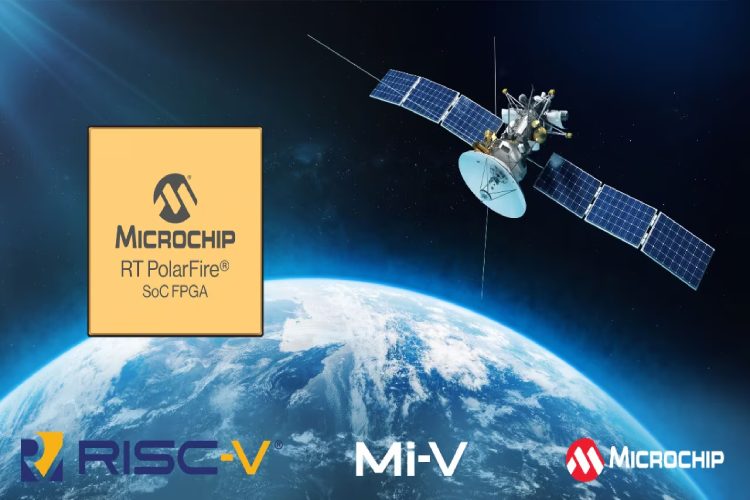
Microchip Technology has introduced the RT PolarFire® system-on-chip (SoC) FPGA, designed for aerospace applications. This FPGA offers real-time Linux® capabilities and is based on the RISC-V® architecture. It provides high performance, reliability, power-efficiency, and security against space-related threats. The RT PolarFire SoC FPGA features a multi-core Linux-capable processor coherent with the memory subsystem. It is suitable for safety-critical systems, control systems, and space and security applications. This FPGA enables central satellite processing capabilities, such as command and data handling, platform avionics, and payload control. Unlike SRAM FPGAs, the RT PolarFire SoC is radiation-tolerant and can withstand harsh space environments without external scrubbers. It reduces power consumption by up to 50 percent, simplifying satellite design.
Microchip’s Mi-V ecosystem supports the RT PolarFire SoC FPGA, providing tools and resources for various operating systems. This ecosystem aims to increase adoption of the RISC-V instruction set architecture (ISA) and support Microchip’s SoC FPGA portfolio. The RT PolarFire FPGA has received the Qualified Manufacturers List (QML) Class Q designation and is working towards QML Class V qualification, the highest standard for space microelectronics. Microchip has a history of providing reliable FPGAs for space missions. Their solutions support high-speed communications payloads, sensors, and flight-critical systems for various space applications.

